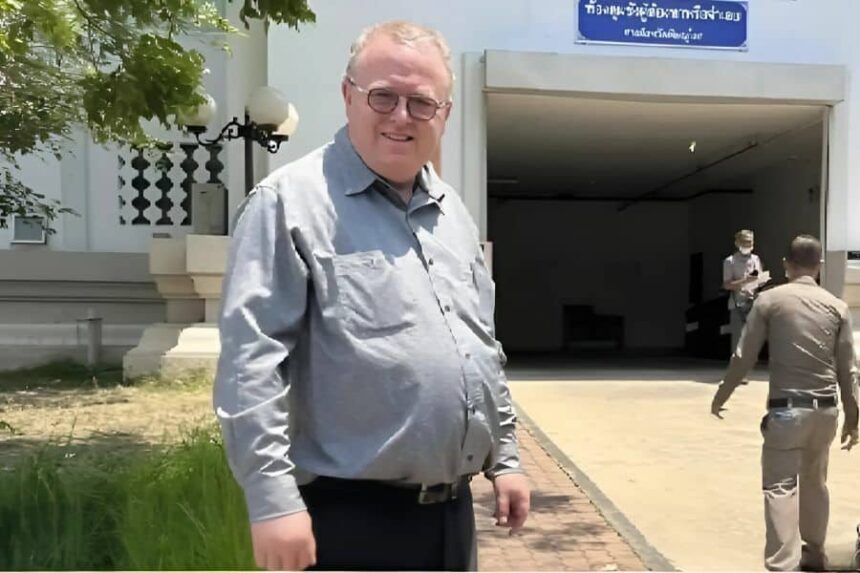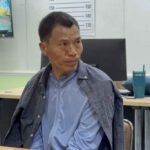Thailand’s recent decision to pursue lese majeste charges against an American professor, Paul Chambers, has sparked strong reactions among international observers. With trade talks between the U.S. and Thailand on the table, this case could create a roadblock at a sensitive time.
The differences between Thai internal politics and global expectations for free speech have sharpened, highlighting a rift that neither side can ignore. Thailand’s lese majeste law, also known as Article 112, makes it a crime to insult, defame, or threaten any member of the royal family.
The penalties are harsh and can result in long prison sentences.
While similar laws exist in other countries, Thailand’s strict enforcement and high conviction rates stand out. Recently, local activists have pushed for reform, but any criticism or call for change often meets with strong resistance.
The government’s use of lese majeste to silence critics has brought sharp criticism from human rights groups and policymakers abroad. These critics argue that the law restricts free speech and harms Thailand’s reputation worldwide. For more insight, the Council on Foreign Relations discusses how this law shapes both domestic and international perceptions of Thailand.
Catalyst for a Diplomatic Challenge
The case of the American professor accused of lese majeste isn’t just another legal matter—it’s a potential spark for diplomatic tension. The professor reportedly made academic comments viewed as critical of the Thai monarchy. What would be a routine academic debate elsewhere turned into a criminal matter in Thailand.
This situation puts the U.S. government in a delicate position. Protecting its citizens and standing up for free expression are both key values. But Thailand is also a major trading partner and regional ally. As Thailand’s human rights record comes under more global scrutiny, the pressure ramps up on both sides to handle the incident carefully.
Trade talks between Thailand and the U.S. were moving forward, with hopes for a new agreement that would benefit both countries. Now, this lese majeste charge throws a wrench in the plans. U.S. businesses watch closely, wondering if political issues will spill into economic cooperation.
The U.S. often ties trade deals to human rights standards and transparency. Thailand’s lese majeste law, especially when applied to foreigners, goes against these expectations. Negotiators may now face tough questions about Thailand’s willingness to protect basic freedoms, which could lead to delays or demands for policy changes.
The Broader Impact of Lese Majeste
Critics point out that the lese majeste law doesn’t just chill free speech—it can directly affect international relations. The Air University published an analysis highlighting how Thailand’s foreign policy interests often clash with its internal enforcement of lese majeste. Policymakers want the country to be seen as open and modern, but the use of this law makes that impossible.
Foreign investors are tuning in. They want stable, predictable environments, not headlines about political crackdowns or international spats. As public protests and legal cases continue, some worry about an exodus of foreign capital—if uncertainty grows, investment might shrink.
The world watches as Thailand grapples with reform. Some experts note that repeated cases like this one harm the country’s image abroad. Calls for change are gathering steam, but the government faces pressure from powerful, traditional interests.
According to a detailed CFR analysis, there’s little hope for quick reforms. The law remains a tool for those in power to silence critics and maintain control. Until that changes, the cost could be international trust and future economic deals.
Thailand’s decision to charge American professor Paul Chambers under lese majeste law has opened a can of worms. The move not only strains diplomatic ties with the United States but also casts a long shadow over ongoing trade talks. Human rights and free speech have become central points of debate, raising questions about Thailand’s global standing.
As negotiations move forward, both countries face tough choices. Will Thailand adapt its laws for the sake of its international ties, or double down and risk new tensions? The answer could shape the future of U.S.-Thai relations for years to come.
Related News:
Chiang Rai Court Sentences Vendor to 50 Years for Lese Majeste

Anna Wong serves as the editor of the Chiang Rai Times, bringing precision and clarity to the publication. Her leadership ensures that the news reaches readers with accuracy and insight. With a keen eye for detail,












